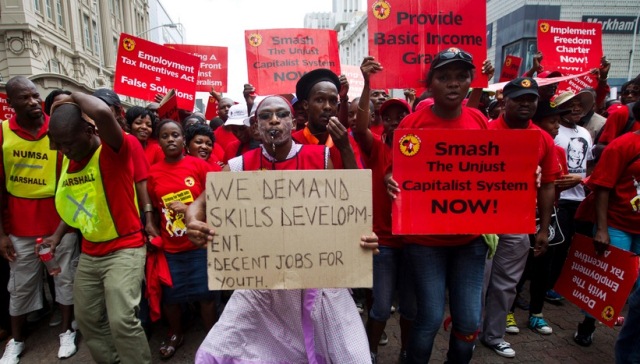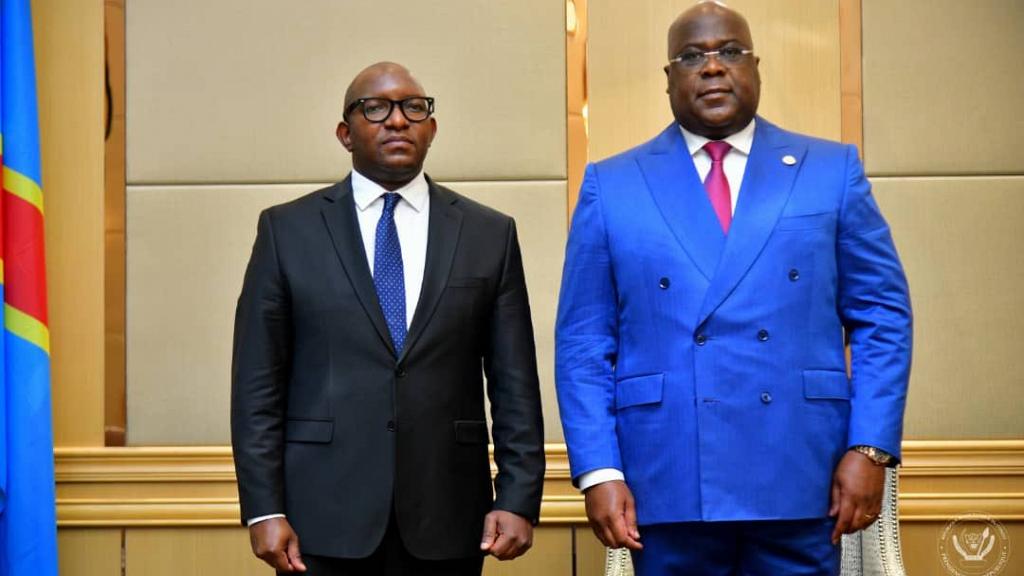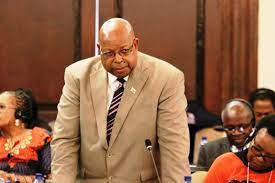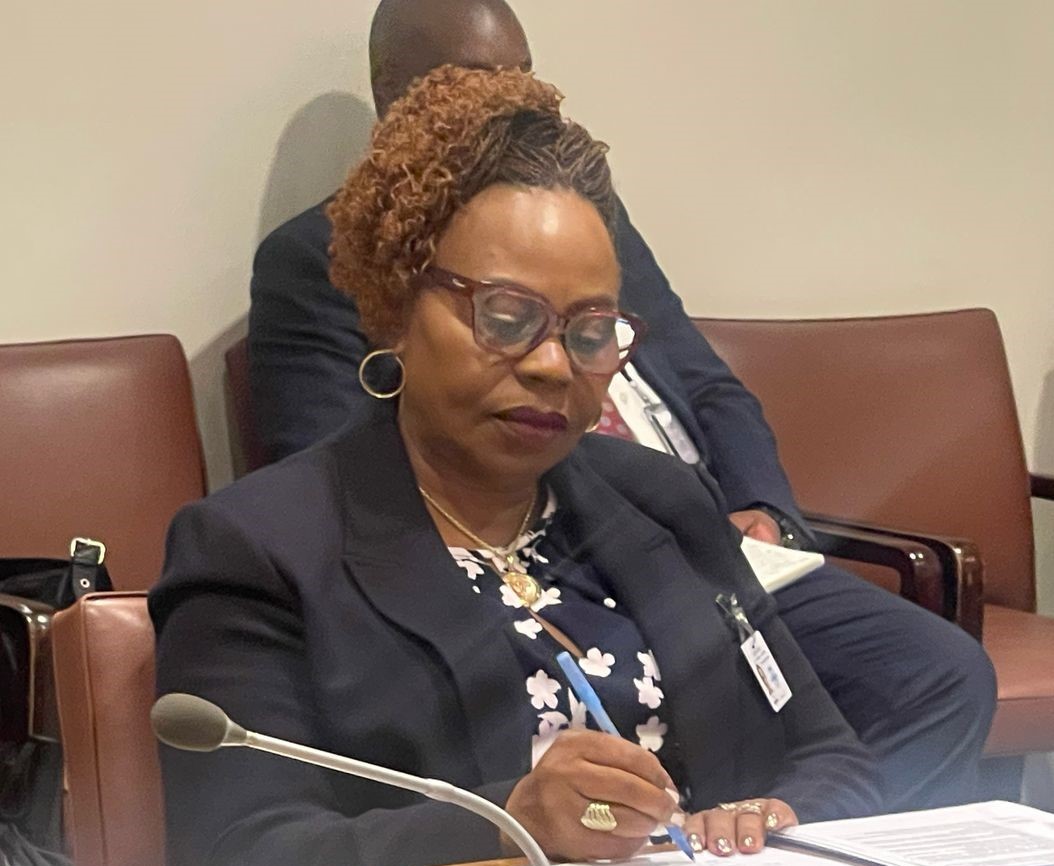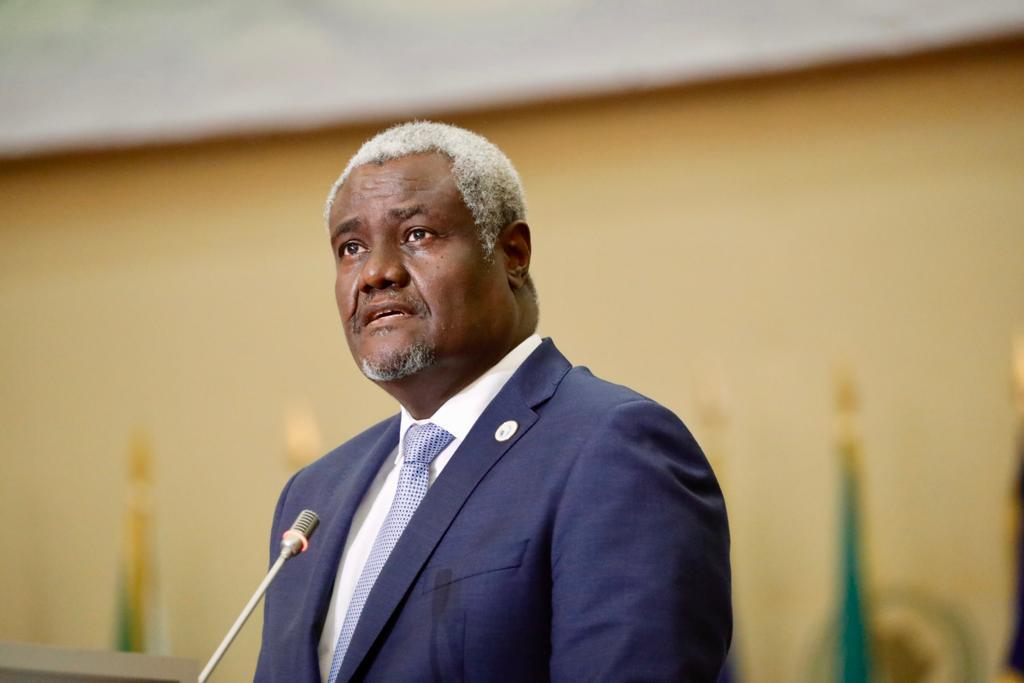
Moussa-Faki-Mahamat-AU-Commission-Chairperson-from-2017-to-2025
By Moussa Faki Mahamat
Excellency Mr. Mohamed Ould Ghazouani, President of the Islamic Republic of Mauritania, Current Chairman of the African Union, Excellencies Heads of State and Government, Madam Deputy Chairperson of the African Union Commission, Mr. Secretary General of the United Nations, Honourable Ministers, Members of the Executive Council, Distinguished Commissioners, Madam Chairperson of the Permanent Representatives Committee, Ambassadors, Permanent Representatives to the African Union, Heads of Diplomatic Mission, Mr. Secretary General of the League of Arab States, Representative of the Palestine Liberation Organisation, Secretaries-General/Executive Secretaries of Regional Economic Communities and Regional Mechanisms, Ladies and Gentlemen, It is with great honour and great pleasure that I am addressing you today, for the last time, in my capacity as Chairperson of the African Union Commission.
I would like, first of all, since we are still at the beginning of the New Year, 2025, to extend to your Excellencies, your families and your peoples, on behalf of all the staff of the African Union, my best wishes for health, prosperity and success. I would also like to express my sincere gratitude to the Chairmen with whom I have worked successively over the past eight years.

I am here referring, in the order of their Chairmanship, to Alpha Condé, Paul Kagame, Abdel Fatah Alssissi, Cyril Ramaphosa, Antoine Félix Tshisekedi, Macky Sall, Azali Assoumani and Mohamed ould Cheikh El Ghazwani.
At this moment of remembrance, I cannot forget President Idris Deby Itno, may his soul rest in peace, who initiated my candidature to head the Commission and who invested himself unstintingly for such a destiny for me. His tragic death was my most atrocious pain of this double term.
Excellencies, Ladies and Gentlemen, eight years have elapsed since my election, at the end of January 2017, as Chairperson of the African Union Commission. At this moment loaded with history, meanings and symbols, I would like to fulfil the moral duty of presenting to you the broad outlines of the outcome of these two terms.
Thanks to this journey, I have deeply imbued myself with both what makes the greatness and the influence of our Continent, our Continental Organisation as well as the various constraints and limitations that have hindered the rhythm of our pace. I have crisscrossed this beautiful and fantastic Continent. I feel deeply proud having visited, at least once, all 55 Member States of our Union.
The opportunity that this moment affords is historical and unique. I will try to fulfil the dual obligation of reporting and raising questions about some issues, being well aware that we must absolutely not abuse your precious time. A consolidated Report of our achievements and an Annual Report have been distributed to you in accordance with our regulations.
Mr. Chairman of the Union, Excellencies Heads of State and Government, Ladies and Gentlemen, the rapid and intense geopolitical upheavals that characterized the international context during my two terms of office had both violent and destabilising manifestations.
The sudden deterioration of the health situation, following the outbreak of COVID-19 was, unfortunately, accompanied by major shocks and profound economic and diplomatic turbulence.
For Africa, this resulted in an increase in the debt burden, a decline in public and private investment flows, violence and the prevalence of some African conflicts, the collapse of Pan Africanism and the chains of African solidarity, manifestations of the obsolescence of African institutions, external appetites in Africa, obvious deficiencies in Governance and Leadership in Africa and even in the world and the crisis of multilateralism after the Second World War, and so on.
The Russia-Ukraine war, which began in February 2022, further darkened this picture, announcing a global geopolitical reconfiguration. A split emerged that resurrected a form of bipolarity which, in political imaginations, brings to mind the theoretically outdated reality of the Cold War.
Deep uncertainties about the sustainability of peace and international cooperation poisoned the minds, darkened consciences and reinforced pessimism, selfishness and mercantile pragmatism. The consequences of this war deeply affected Africa, which imported most of its cereal consumption and agricultural inputs from these two countries, Russia and Ukraine. The spectre of food and health insecurity hung over many of our countries, many of which continue to suffer from their structural fragilities.
Your Excellency Mr. Chairman, Excellencies Heads of State and Government, Ladies and Gentlemen, In the Middle East, the Brotherly people of Palestine suffered and are still suffering one of the worst injustices in the history of mankind.
The horrible and unjust war which completely destroyed everything in Palestine and particularly in Gaza and the persistence to deprive this people it’s fundamental rights to independence, peace, existence and to life is an indescribable shame for the whole of mankind.
In spite of all this the valiant people of Palestine remained stoic and the AU remained firmly by the side of the Palestinian people. This apocalyptic landscape that Palestine, the Gaza Strip and its population, in particular, offers today, after more than a year of war destroying all forms of life and property, continues to unfold in almost total silence of the powers of the world, except for the call for the systematic deportation of Palestinians from their lands! It is really adding insult to injury!
This unprecedented tragedy weighs heavily, today, despite the Ceasefire and the release of hostages and prisoners, facilitated by Qatar, Egypt and the USA, on the universal conscience and deeply questions our humanity.
The stranglehold of increased, stifling, dehumanised globalisation does not leave Africa outside the hegemonic struggles that are taking place far from its land. On the contrary, the Continent is suffering from the excesses and fragmentations reflected in proxy conflicts, barely veiled support from external powers for the warring parties on the Continent, the expansion of Terrorism and Violent extremism, the continuation of the devastating war in The Sudan, in Eastern DRC, the divisions of Libya, whose Reconciliation Charter was adopted yesterday, here, which I welcome.
Congratulations to you, Mr. President Denis Sassou Nguesso! Tensions of all kind in the Sahel, the Lake Chad Basin, the Gulf of Guinea, Mozambique, the Horn of Africa and the Great Lakes Region are another part of this smouldering string of African crises.
The flow of political, economic, environmental refugees and other Internally Displaced Persons is exacerbating the already fragile security, food and health situation in many Member States. It is this seriously degraded global and Regional context that we have been facing over the last eight years of developing our action.
Your Excellency Mr. President, Excellencies, Heads of State and Government, Ladies and Gentlemen, the institutional reform of our Union, which began in 2017, aimed at establishing optimal conditions to guarantee the efficient pursuit of the programmes included in our Strategic doctrinal guiding compass, Agenda 2063, for the purpose of better resistance to the challenges thus identified.
In this regard, the reconfiguration of the Leadership, a Staff Performance Evaluation process, closer cooperative relationships between the AU and the Regional Economic Communities and Regional Mechanisms, enacted by a new Protocol, the institutionalization of a Coordination Summit dedicated to integration, the establishment of the R10 and F15 Technical groups, responsible for ensuring the quality of human resources recruited and compliance with the Golden rules of Budgetary, Financial and Accounting Management of the Union, and so on, were the highlights of this Reform.
An assessment of the relevance of all the Organs of the Union, without exception, will give rise to a new administrative and institutional map of the Union. I would like to stress here, in particular, three of these Organs: – the Pan African Parliament, the Peace and Security Council (PSC) and the Permanent Representatives Committee (PRC).
The overall movement of the Reform, with its shadows and lights, confirms its relevance and its necessarily progressive nature to be deployed over the long term. It is a requirement for the perpetual adaptation of the structures of our Union to the developments that characterise this world. I would like to thank Presidents Paul Kagame and William Ruto for their remarkable efforts to move this Reform forward.
Mr. Chairman, Excellencies, Heads of State and Government, Ladies and Gentlemen, an assessment of the First Ten Year Implementation Plan of Agenda 2063, covering the period from 2014 to 2023, reveals the sectoral progress made in our march towards building “the Africa we want”. It is crucial to learn the real lesson and make the appropriate subsequent adjustments.
In the field of health, it is a holistic approach translated, on the ground, into actions crowned with success. With the outbreak of the COVID-19 pandemic, Africa CDC established itself as the most effective instrument in the fight against all diseases. The worrying issue of Health Financing continues to be a source of concern for us.
Two mechanisms for Financing Universal Health Coverage and combating malnutrition on the Continent have been designed. Thanks to the African Veterinary Vaccine Centre (PANVAC), whose new vaccine production laboratory was inaugurated in February 2024, significant progress has been made in the areas of Livestock, Animal health and Socio-economic development.
The African Medicines Agency, AMA, has begun setting up its Headquarters in Kigali and its activities are on the launch pad. Traditional medicine has benefited from the development of two Ten-year Plans of Action, the last one from 2025 to 2035.
The field of Education has been driven by the desire to design a new Educational system, according to the requirements of a world where the major challenge has become competition around Scientific and Technological Innovation and now Artificial Intelligence.
It is in line with this spirit that diverse and complementary strategies were developed, notably during the Nouakchott Conference in 2024, initiated by the Current Chairman, Mauritania, in cooperation with the African Union Commission and other partners including UNICEF and UNESCO, in particular.
The centrality of gender and youth issues has been affirmed. The Special Envoys for Women and Youths have established themselves well in the institutional universe of the leadership of the Organisation.
Throughout the eight years of these two terms, many other crucial areas engaged all the attention they deserved, due to their importance for the Socio-economic development of Africa. Whether it is our vision on mining issues, the Comprehensive Agriculture Programme and the Blue Economy, the Development of Infrastructure and Energy, Climate Change with adaptation and Climate resilience of the Continent, Regional Integration through the implementation of the African Continental Free Trade Area, the effective operationalisation of the Peace Fund, which has exceeded the set target of 400 million Dollars, the treatment of humanitarian crises, of which Africa is the epicentre, with the establishment of the African Humanitarian Agency, the strengthening of the visibility of the AU, through our Partnership with the United Nations, all have been at the centre of our collective endeavour.
I would like to seize this opportunity to pay special tribute to a major architect of this Partnership, namely Antonio Guterres. The membership of the AU in the G20 and the BRICS, of which several African states are members, has crowned this visibility. On all these issues, the specialized structures of the African Union and the Member States have carried out in-depth discussions and outlined clear prospects for some and given concrete form to many others.
Mr. Chairman, Excellencies, Heads of State and Government, Ladies and Gentlemen, a few months ago, I sent your Excellencies a letter relating to some urgent issues at the heart of the future of our Union and its capacity to attain our objectives, as best as possible.
I am, here, thinking, first, of the Peace and Security Council, mentioned earlier on. Its role should be carried out on the basis of the texts that govern its operation from which it draws the strength and legitimacy to design, supervise the pressing issues of our collective security and impose, if necessary, the required sanctions.
It is very regrettable that its decisions are sometimes contrary to our principles and when they are not, often remain dead letters. The decisions of this central Continental organ cannot be considered in a casual manner and be neglected by the Member States, nor by a biased concept and practices of the Regional Economic Communities (RECs) in the name of the hackneyed principle of subsidiarity interpreted in a self-interest and partisan manner.
The mention of the PSC brings forth the issue of Unconstitutional Changes of Government. In this regard, I mentioned, in the said letter, that we now have only two options. Either abandon the principles that currently govern this issue or apply them seriously, even if it means revising them and adapting them to our new needs and realities. We cannot, for the sake of our credibility, continue to rehash these principles like a litany, while trampling on them or accepting their flagrant and constant violation.
There is nothing that eats more into our credibility than such an attitude which has recently led to a real distrust in the rules and principles and weakened integration in part of the Continent. (a reference to the Alliance for the Sahel States – Burkina Faso, Mali & Niger)
I also mentioned the persistent and paralysing slump of our unbearable division in terms of representation in relation to our so-called strategic Partnerships. I drew attention, here again, to choose one of the two options that are presented to us and which I presented in clear terms in my letter.
I had also mentioned the recurring issue of the financing of the Organisation, which paradoxically contrasts with the continuing trends of multiplication of Organs without concern for their financing. An independent organisation and guardian of our freedom and sovereignty cannot be built with the financing by others.
I had also raised the depriving reduction of the initiatives of the Chairperson of the AUC and called for its harmonisation with the legal and customary obligations that are now imposed on him.
In short, the sense of my correspondence is simple and brutal. It is the question of placing our Organisation, worthily or not, before a terrible combination of factors of complexity.
These are all the problems that you are facing today that I wanted to raise modestly in my letter. Are we finally going to open our eyes to the fate of our Organisation or are we going to continue to let it lament and moan?
Excellency Mr. Chairman, Excellencies Heads of State and Government, Ladies and Gentlemen, it is a commonplace truth, today, to affirm that the concepts and legal instruments serving as a framework for analysing the dynamics of contemporary international politics are outdated.
They have lost their both structuring and explanatory virtue of current global phenomena. Such an observation explains why the debates today focus on the modalities for the advent of a new global economic and political governance.
Africa cannot remain silent and inactive. It must imperatively throw itself into the battle to carve out its own place in the configurations currently being designed. This is not easy. It will require ingenuity, creativity, method, and courage.
More generally, this will require a real redemption for an awakening of the consciousness and the soul of Pan Africanism, that of the awareness of our Africanity, that of the pride of our Africanity, that of the commitment to our Africanity, that of the rejection of our depersonalisation and our nihilistic servility of our identity and our being.
This is what African youths are calling us to do. They, the majority in all our States, are becoming increasingly demanding. Their voices are resonating louder and louder thanks to new forms of communication that amplify all expressions.
African youths are constantly challenging us and putting us on trial for being out of step, out of step with their aspirations, which are that of an Africa that is open to itself and united, sovereign in its policies and choices, standing and interdependent.
This solidarity has always been our lifeline in our fight against colonialism and Apartheid and the completion of our independence. Faith in our Pan African solidarity has galvanised our consciences, our wills and our intelligence to lead us towards a more promising common destiny.
There are no new paths to our future other than listening to and giving substance to the aspirations of our youths, our fellow citizens and our Diaspora.
Mr. Chairman, Excellencies, Heads of State and Government Ladies and Gentlemen, I am leaving my office definitively in a few days. I confess that I feel overwhelmed by a sweet feeling of freedom that allows me to say these few words from the bottom of my heart.
The first is a word of deep gratitude to your Excellencies for the trust you have placed in me by electing me for two successive terms as Chairperson of the African Union Commission. You may rest assured that I have measured and I still measure all the dimensions of this trust and the heavy weight of subsequent gratitude and acknowledgement.
The second word concerns the other one and me. In this other, I think first of our Partners, especially those who have offered us sincere friendship and mutually beneficial cooperation. In this other I think first of our partners, especially those who have offered us sincere friendship and mutually beneficial cooperation. I would like to thank them all and express our gratitude to them.
I think, then, of you present here, as well as of those who have left us for various reasons. We have achieved good and great things and above all have, as far as possible, respected a certain ethic and a line of conduct that we believe to be consistent with our principles and objectives. Please accept my full gratitude.
The members of the African Union Commission, other men and women, then, have often worked in the shadows with diligence, dedication, discipline and talent. I would like to pay them the tribute they deserve.
The Third word relates to my own limitations. I wanted so much to do quickly and better during the two terms that you entrusted to me. I know that I have not done everything. Perhaps I underestimated the burden of the task and the weight of the constraints. I know that I may have made mistakes.
Perhaps I have, here and there, weakened or made mistakes and missed opportunities to do better. I would like to apologise and ask for forgiveness, if my shortcomings have caused any individual or collective harm.
The Fourth word relates to my feelings at the moment. I am happy to regain my freedom but I know that I will also be nostalgic for the places, the women and men whom I have known… for the Ethiopian people with their age-old civilisation, for you my dear brother, Aby Ahmed. Perhaps it will be necessary to write the history of all this tangle of feelings and sensations…
Finally, my Fifth word is that of my oath to continue to think of Africa, to serve Africa, to dream for it, for its youths for whom we have not done enough and for whom we must do a lot because, after all, it is they who count today and more so tomorrow.
A final word to you Mr. President and dear brother Ghazwani to tell you how much I appreciated your close relations throughout your mandate. You have been a master of wisdom, civic-mindedness and loftiness, inspiring, in all respects.
To you Mr. President and brother Joâo Lorenço (incoming Chairman), I would like to stress that the quiet strength that you symbolize reassures me about a Chairmanship of seriousness and substance.
May you both in particular, and all of us, have an active thought for the great prisoner of the Sahel, Mohamed Bazoum whose interminable detention is not justified. He must be released unconditionally. I wish full success to our Summit. I wish full success to our next Leadership.
I thank you.






